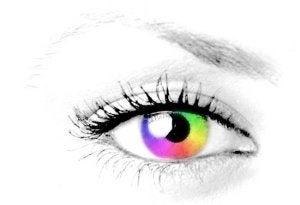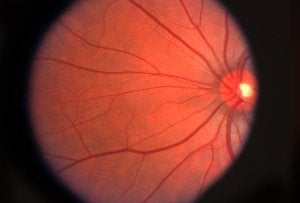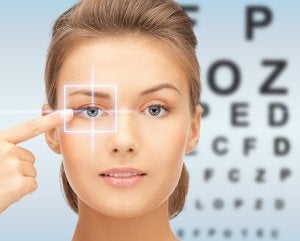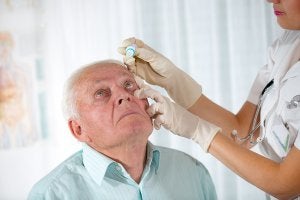-
Tips for Recovering from LASIK
 If your eye doctor or ophthalmologist recommends LASIK eye surgery near Chicago , you may have a lot of questions about the procedure and the recovery period. Your recovery will be much shorter and less stressful if you follow the advice of your eye doctor. Here are some tips on how to help yourself recover more quickly from LASIK surgery.
If your eye doctor or ophthalmologist recommends LASIK eye surgery near Chicago , you may have a lot of questions about the procedure and the recovery period. Your recovery will be much shorter and less stressful if you follow the advice of your eye doctor. Here are some tips on how to help yourself recover more quickly from LASIK surgery.Give Yourself a Break
Give your eyes time to rest throughout the day. Don’t use them for taxing activities or to focus on small objects for prolonged periods of time. Take a few days off of school or work, and let yourself slowly ease back into the routine of your daily life. If you notice that your eyes feel strained or stressed, or if you develop a headache, lie down and close your eyes for a period of time. You can also try lying down in a dim room.
Protect Your Eyes
Take baths instead of showers to prevent water, shampoo, and soap from dripping into your eyes and irritating them. Do not rub your eyes with your hands or a towel. Do not play sports or participate in any water activities for at least a month after surgery. Your vision and depth perception have not completely adjusted, and you don’t want to risk getting hit in the eyes or sustaining an eye injury. Wear protective eyewear for at least 2 weeks post-surgery, including while you sleep or if you shower. Wear dark sunglasses both indoors and outdoors to protect your eyes from the sun and harsh lights.
Follow Your Doctor’s Advice
Visit your eye doctor regularly post-surgery, particularly 24 hours after the procedure. Follow his advice strictly. If he prescribes you medicated eye drops, use them as directed. They can help your eyes heal faster, and will make them feel less dry and irritated. Your eye doctor may suggest that you avoid wearing makeup or using facial lotions and creams. They can easily get in your eyes and cause irritation and infection.
-
Understanding Cataracts
A cataract is a cloudy area in the lens of the eye that makes it difficult to see. Cataracts can be caused by aging, sunlight exposure, and eye injuries. They can be diagnosed and treated by an eye doctor or ophthalmologist in Chicago . Treatment may include corrective lenses and/or surgery.
Watch this video to learn more about cataracts. An eye doctor with the National Eye Institute discusses the causes, symptoms, diagnosis, and treatment options for those with cataracts. Cataracts can cause a slow, gradual loss of vision, and some people are not afflicted with vision loss at all. If you suspect you may be suffering from cataracts, visit an eye doctor or ophthalmologist near you.
-
Spotlight on Macular Degeneration
 Macular degeneration is an eye condition that is caused by the retina deteriorating and vision becoming impaired. The condition can be diagnosed and treated by an eye doctor or ophthalmologist in Chicago . Symptoms include the distortion of lines or the center of vision, the appearance of dark, blurry areas in the center of vision, the white out of the center of vision, and diminished or distorted perception of color.
Macular degeneration is an eye condition that is caused by the retina deteriorating and vision becoming impaired. The condition can be diagnosed and treated by an eye doctor or ophthalmologist in Chicago . Symptoms include the distortion of lines or the center of vision, the appearance of dark, blurry areas in the center of vision, the white out of the center of vision, and diminished or distorted perception of color.If you experience any of these symptoms, see an eye doctor or ophthalmologist as soon as possible. There is no cure for the condition, but your eye doctor can offer several treatment options for macular degeneration. These include medication called anti-angiogenic drugs that are injected into the eyes, laser therapy or photodynamic laser therapy, and certain vitamins. Vitamins C, E, beta-carotene, zinc, and copper can sometimes decrease the risk of vision loss that is associated with macular degeneration.
If you’ve been diagnosed with macular degeneration, you can prevent the condition from getting worse by making some simple lifestyle choices. Eat a healthy diet that is rich in dark green, leafy vegetables. Eat fish, and other foods rich in omega-3 fatty acids, and limit your intake of saturated fats.
-
A Look at Amblyopia
 Amblyopia, also known as lazy eye, is an eye condition that develops during childhood. It can be diagnosed by an eye doctor or ophthalmologist. The condition can be corrected over time with an early diagnosis and your child’s commitment to your eye doctor’s recommended treatment method. If you’re worried that your child is developing amblyopia, visit an ophthalmologist near Chicago , and continue reading to learn about the condition’s symptoms and treatment options.
Amblyopia, also known as lazy eye, is an eye condition that develops during childhood. It can be diagnosed by an eye doctor or ophthalmologist. The condition can be corrected over time with an early diagnosis and your child’s commitment to your eye doctor’s recommended treatment method. If you’re worried that your child is developing amblyopia, visit an ophthalmologist near Chicago , and continue reading to learn about the condition’s symptoms and treatment options.What is Amblyopia?
Amblyopia is a condition in which one eye is much weaker than the other one. As a result, the brain will only interpret the images that are received by the stronger eye, and the vision in the weaker eye will become worse and worse. You child can develop this condition at birth or at any point up until around 7 years of age. The younger your child receives treatment for the condition, the more successful the treatment will be. Amblyopia can be caused by genetics, low birth weight, strabismus, cataracts, or by being more nearsighted or farsighted in one eye than the other.
What are the Symptoms and How is the Condition Diagnosed?
The symptoms of amblyopia include an eye that wanders or looks in a different direction than the other eye, tilting the head or squinting to improve vision, an upper eyelid that droops, or crying and complaining when one eye is covered up. The condition is diagnosed by an eye doctor or ophthalmologist via an eye exam. The exam will demonstrate that the vision in one eye is worse than the vision in the other. No child is too young for an eye exam, so if you’re concerned that your child has amblyopia, make an appointment with an eye doctor as soon as possible.
How is the Condition Treated?
You child’s vision can be corrected if he begins using the weaker eye instead of the stronger one. The weaker eye will become stronger over time, and the vision in that eye will begin to get better. Your child’s eye doctor may make him wear an eye patch over the stronger eye.
-
Ophthalmologist Top 15 Foods for Eye Health
It sounds counterintuitive to eat your way to better eye health, but the truth is that nutrients in some foods can prevent eye disease and vision loss. You’ve probably heard that of carrots and leafy greens boost eye health, but there are numerous other foods that help you keep your vision.
Unsurprisingly, snacking your way to eye health starts in the produce section. A good rule of thumb is to pick fruits and vegetables of vibrant and deep coloring, which indicates high nutritional content, especially of vitamin A, which is crucial to eye health. But nutrient-rich foods aren’t just in the produce section: fish, nuts, and eggs all provide essential nutrients that can prevent macular degeneration and cataracts.
Remember, it’s important to eat with your eyes in mind. Since a lot of eye diseases can be prevented, it’s never too late to start adding foods for eye health to your diet.
-
Protect Your Vision
You may already know that scheduling comprehensive eye exams each year with an ophthalmologist near Chicago is an effective way to protect your healthy vision. But did you know that sports, workplace hazards, and yard work are the leading causes of eye injuries? Talk to your ophthalmologist about preventive eye care. He or she is likely to recommend that you wear safety glasses that offer side protection to reduce your risk of vision loss due to eye injuries.
For more helpful tips on protecting your vision, watch this video and consult an ophthalmologist. This expert discusses why you can’t rely on regular eyeglasses to protect your eyes from injuries caused by airborne yard debris, chemicals, or blunt force trauma.
-
Why You Should Consider LASIK
 Laser in situ keratomileusis (LASIK) is a type of eye surgery that corrects refractive errors, such as nearsightedness and farsightedness. It can also be used to correct astigmatism and presbyopia. LASIK is the most popular type of refractive surgery in the U.S., with good reason. It offers freedom from corrective lenses, it has an exceptional safety record, and it only requires a minimal recovery period. To find out if having laser eye surgery near Chicago might be a good choice for you, consult an ophthalmologist.
Laser in situ keratomileusis (LASIK) is a type of eye surgery that corrects refractive errors, such as nearsightedness and farsightedness. It can also be used to correct astigmatism and presbyopia. LASIK is the most popular type of refractive surgery in the U.S., with good reason. It offers freedom from corrective lenses, it has an exceptional safety record, and it only requires a minimal recovery period. To find out if having laser eye surgery near Chicago might be a good choice for you, consult an ophthalmologist.Permanent Vision Correction
One of the most common reasons why people have LASIK eye surgery is that it reduces or eliminates their dependence on eyeglasses and contact lenses. LASIK can correct your vision by creating a very small flap in the cornea with a precisely focused laser. Then, the excimer laser reshapes the cornea. A properly shaped cornea can focus light on the retina precisely, which eliminates refractive errors such as nearsightedness and farsightedness. The excimer laser is capable of reshaping the living tissue of your corneal cells without causing damage such as scar tissue.
Superior Patient Safety
If you’ve been delaying talking to an eye doctor about LASIK surgery because of safety concerns, you can rest assured that the low rate of complications makes LASIK surgery one of the safest procedures available. In fact, LASIK surgery may actually help protect your vision. Since you won’t need to put in contact lenses every day, you’ll have a lower risk of eye infections.
Fast Procedure
Another reason to consider having LASIK is that it won’t take up too much of your time. After your consultation with the ophthalmologist to determine if you’re a good candidate, the procedure itself takes less than 30 minutes—and much of that time is spent on preparations. The laser takes less than a minute per eye to correct refractive errors.
Minimal Recovery
Immediately after having LASIK surgery, it’s advisable to rest for several hours with your eyes closed. You can take a nap while wearing plastic shields to protect your eyes. Patients typically rest for a day or two, after which they can return to most activities. However, it’s important to protect the eyes from irritants for a while. Compared to most surgical procedures, the recovery for LASIK is quite minimal.
-
When to Have Cataract Surgery
 The only effective treatment for cataracts is to undergo cataract surgery . However, not everyone needs cataract surgery right away. If you’ve been diagnosed with this eye condition, you can consult a cataract surgeon serving Chicago for personalized recommendations. The cataract surgeon may inform you that you do not necessarily need surgery right away if the cataract is not interfering with your daily activities or causing blurry vision. Some individuals only undergo surgery when their cataracts cause problems with reading, driving, or other activities.
The only effective treatment for cataracts is to undergo cataract surgery . However, not everyone needs cataract surgery right away. If you’ve been diagnosed with this eye condition, you can consult a cataract surgeon serving Chicago for personalized recommendations. The cataract surgeon may inform you that you do not necessarily need surgery right away if the cataract is not interfering with your daily activities or causing blurry vision. Some individuals only undergo surgery when their cataracts cause problems with reading, driving, or other activities.However, if you do have the option of waiting to have surgery, you should be aware of the potential risks associated with letting a cataract go untreated. For example, some cataracts that are left untreated for long periods of time can cause inflammation or increased eye pressure, which can contribute to glaucoma. Previously, cataract surgeons could only perform surgery when the cataract was already in an advanced stage of development. As a cataract develops, it becomes harder. Thanks to modern eye surgery technology, ophthalmologists can now remove cataracts when they are at any stage of development.
-
Practice Fireworks Safety for Your Eye Health
 Did you know that July has been designated as Fireworks Eye Safety Month? Annually, thousands of people suffer from injuries caused by fireworks during June and July, over a thousand of which involve eye injuries. A significant percentage of affected individuals are children and teens. Since fireworks can cause irreversible blindness, an ophthalmologist near Chicago may recommend that patients avoid fireworks displays altogether. If you do decide to view fireworks displays or to use legal consumer fireworks at home, you can ask your eye doctor for some eye care tips to protect your vision.
Did you know that July has been designated as Fireworks Eye Safety Month? Annually, thousands of people suffer from injuries caused by fireworks during June and July, over a thousand of which involve eye injuries. A significant percentage of affected individuals are children and teens. Since fireworks can cause irreversible blindness, an ophthalmologist near Chicago may recommend that patients avoid fireworks displays altogether. If you do decide to view fireworks displays or to use legal consumer fireworks at home, you can ask your eye doctor for some eye care tips to protect your vision.Understanding the Risks
Before attending a fireworks display, it’s a good idea to familiarize yourself with the potential risks. Many people assume that the individuals who are handling the fireworks are at the highest risk of injury. It’s true that many of the injuries caused by fireworks involve the hands and fingers. However, roughly half of all fireworks injuries are sustained by bystanders . Fireworks can cause eye injuries such as ruptured eyeballs, optic nerve damage, retinal detachment, and thermal burns to the eye. They can also cause severe lacerations and abrasions.
Protecting Yourself as a Bystander
If you choose to enjoy summer fireworks displays, only attend authorized public displays that are conducted by individuals with the proper licensing. Stay behind the safety barriers, which should be placed at least 500 feet away from the fireworks. If you come across any unexploded fireworks, never try to pick them up. Instead, maintain a safe distance and contact your local fire or police department.
Using Consumer Fireworks Safely
Consumer fireworks are particularly dangerous, which is why many states and municipalities have made them illegal. If you do choose to purchase consumer fireworks, make sure they are legal in your area. Your eye doctor would also advise you to never give fireworks, including sparklers, to children. Sparklers can burn at up to 2,000 degrees. Those who handle fireworks and any individuals who are viewing the fireworks must wear protective eyewear at all times.
Responding to Fireworks Eye Injuries
Despite following these safety tips, serious eye injuries may still occur. It’s critical to get immediate medical help. While waiting for emergency responders to arrive, avoid rubbing the eye, applying pressure, applying ointments, rinsing the eye, or removing any embedded objects. Additionally, avoid taking pain relievers such as ibuprofen or aspirin.
-
Detecting Glaucoma
An eye doctor in Chicago can look for indicators of glaucoma during a comprehensive dilated eye exam. First, the ophthalmologist will apply special eye drops to each of your eyes. You’ll need to wait a few minutes for the drops to dilate your pupils, or enlarge them. When the pupils are dilated, the ophthalmologist can clearly see the optic nerve, macula, and retina. He or she will look for changes that can indicate glaucoma , such as changes in the shape or color of the optic nerve, or cupping of the optic disc.
To hear more about making a dilated eye exam part of your eye care routine, watch this video. You’ll see an animation that demonstrates how this exam is performed and what changes can occur when a patient has glaucoma. This video also discusses some of the risk factors associated with glaucoma and offers recommendations regarding how often patients should have a dilated eye exam.
